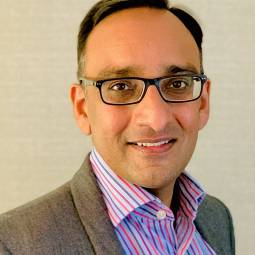
Dr Lalit Bhalla
Cardiologist
- Cardiology
- Self-pay/Insured
A heart attack, also known as myocardial infarction, or coronary thrombosis, is when part of the heart muscle dies because it has been starved of oxygen.
A heart attack usually occurs when a blood clot forms in one of the coronary arteries (the blood vessels that lead to the heart muscle), blocking the blood supply to the heart. A blockage can also sometimes be caused by a spasm (sudden narrowing) of a coronary artery.
A heart attack often causes severe and crushing pain in the middle of the chest. This pain may then travel from the chest to the neck, jaw, ears, arms, and wrists. The person may also be cold and clammy, and their skin may appear pale and grey in colour. If you suspect that someone is having a heart attack, or you are experiencing the symptoms of a heart attack yourself, make sure you seek medical attention immediately. The sooner the treatment is received, the more effective it will be and the greater the chance of survival.
Heart attacks are much more likely to occur when your arteries have become narrowed. This usually happens over a period of many years. The arteries are often narrowed by fatty deposits which form on the artery walls. There are a number of factors which can increase the risk of these fatty deposits forming. Smoking, high blood pressure, poor diet, lack of exercise and obesity are all contributing factors.
Approximately six in every 1,000 men in the UK who are between 30-69 years of age have a heart attack each year. For women, the figure is much lower, at two in 1,000. Men are therefore three times more likely to suffer from a heart attack than women. A heart attack can cause serious complications, and be potentially fatal. Half of those who die, do so from cardiac arrest (when the heart stops completely) within 3-4 hours of the start of the attack.
Many people can make a full recovery following a heart attack, and most will be able to return to work and resume their daily activities, once they have completed their rehabilitation.
As everyone who experiences a heart attack will face different difficulties and challenges, there is no set time period as to how long your recovery will take. A wide range of health professionals will provide you with all the help, support, and guidance that you need during your rehabilitation process.

Our transparent pricing and bespoke packages allow you to pay for the treatments and services you need, when you need them.

Many of our dedicated consultants have partnered with insurance companies to give you peace of mind with your health.
For more information call one of our friendly patient advisors or book online using the button below.